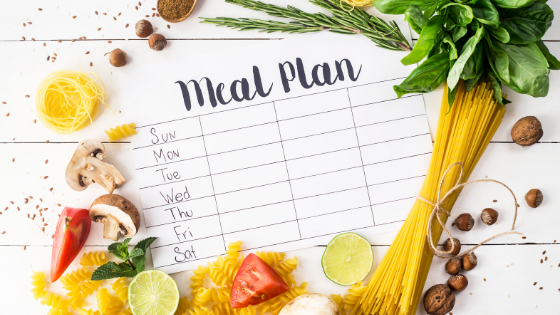By Sophie Hannevig Area Sales Manager & Healthcare Advisor
The term meal planning can seem like a super boring, rigid way of living your life that only neat freaks and health enthusiasts do. What if you're not one of those super organised, “I only consume twice filtered reverse osmosis air and water” types of people? Meal planning can be as simple or as elaborate as you like but we can all agree that there are many benefits to meal planning when done right. For example, did you know that people who go shopping with a specific list and stick to it on average save 20% on their groceries when compared to people who just wing it. If you plan your meals a week in advance, it not only saves you money but it will also save you time as you won’t be “just popping into the shops” every second day to buy random things for dinners you don’t even know if you have the remainder of the ingredients at home or not. Everyone can benefit from some degree of meal planning, be that every meal or maybe just dinners. Below, I will give you some top tips when it comes to meal planning to take the effort out of “planning”.
- First step for meal planning is to check what you already have in your cupboards or pantry.
- Decide whether you would like to stick to a set budget or if you would like to meal plan for health purposes rather than financial, as these two will vary.
- Make a list of meals that you can work around what you already have in your cupboards/freezer. For example you may already have lentils/chopped tomatoes in the cupboard or mince in the freezer so you can add lentil/mince bolognese to your weekly plan.
- If you decided to set yourself a budget, break down how much you would like to allocate to meats/veggies/household etc and see what you have to work with for the base of your meals.
- Possibly the most important element of the week will be, you. Are you going to be at home every night or do you know you will be out or working late this week? You have to plan for what you actually need and be realistic. There’s no point buying food for seven nights, if you usually eat out four nights. Start with where you are currently at and build from there.
- If you are just starting out with meal planning and food preparation stick with easy meals that don’t have too many ingredients. Then on a piece of paper, write down the ingredients you need to make those meals and use this as your shopping list in the supermarket! Start slowly and you can you build on your planning and cooking skills each week.
- Enjoy the freedom that being organised affords you. The less time you spend thinking about what to have for dinner, the more time you have to spend on the things you enjoy doing.
